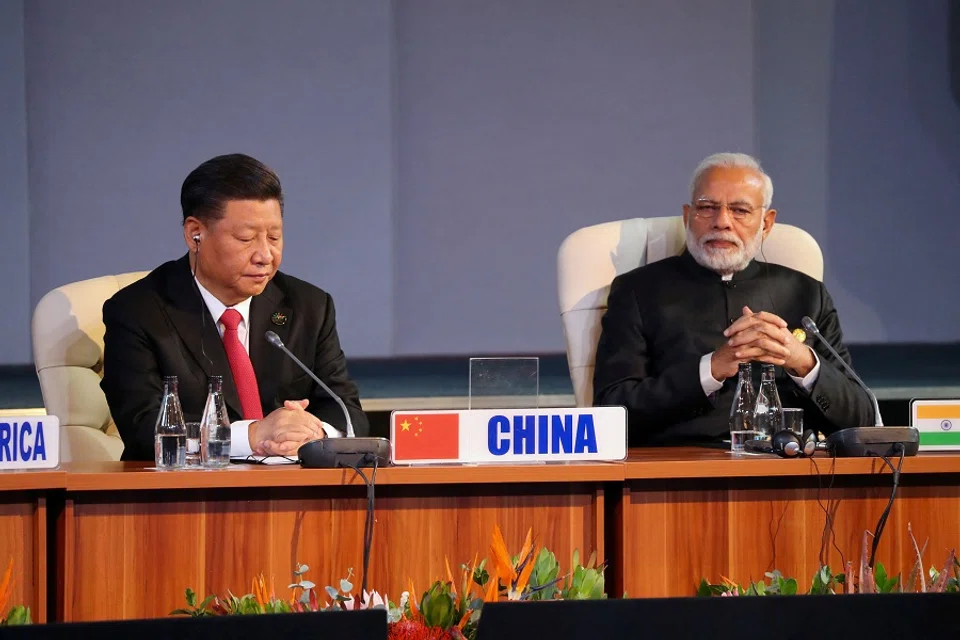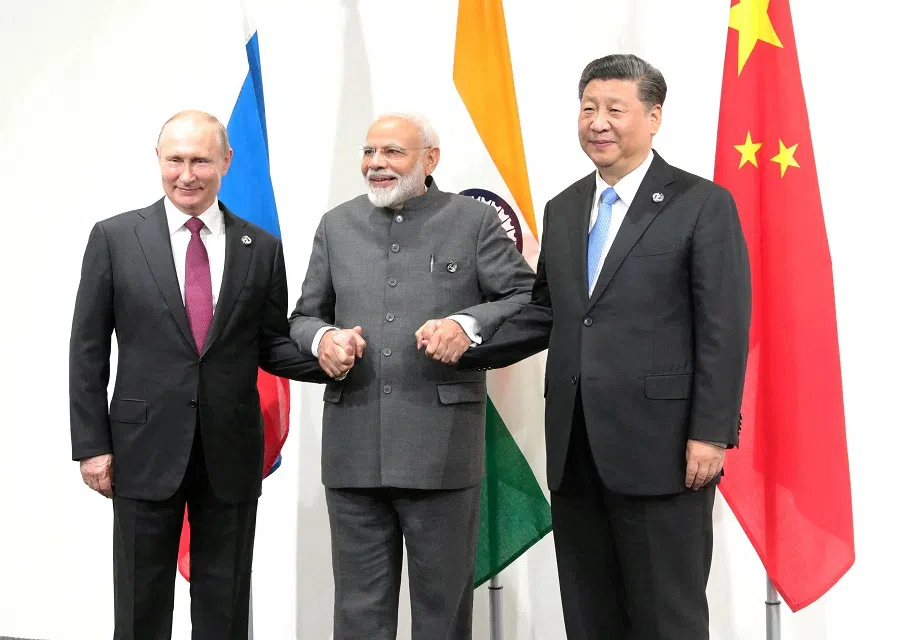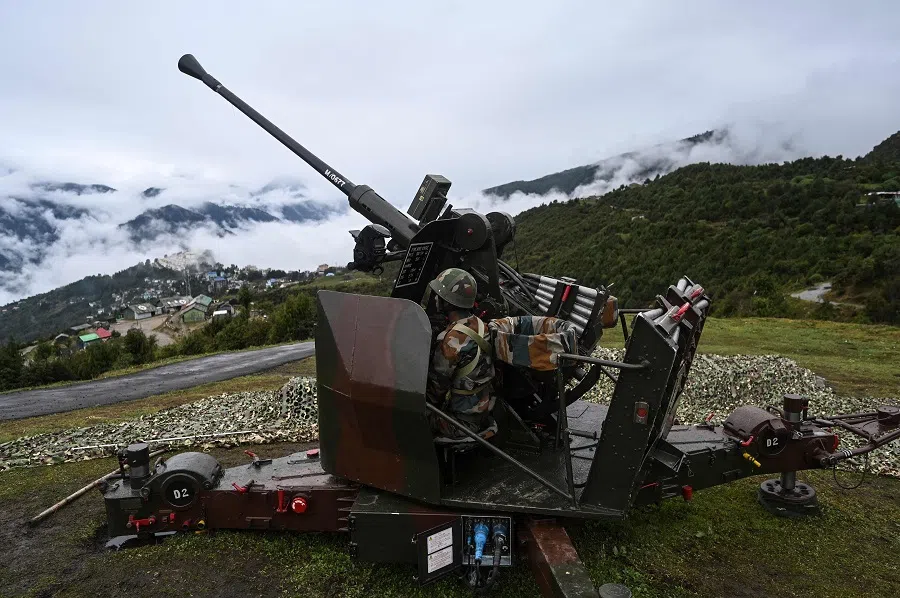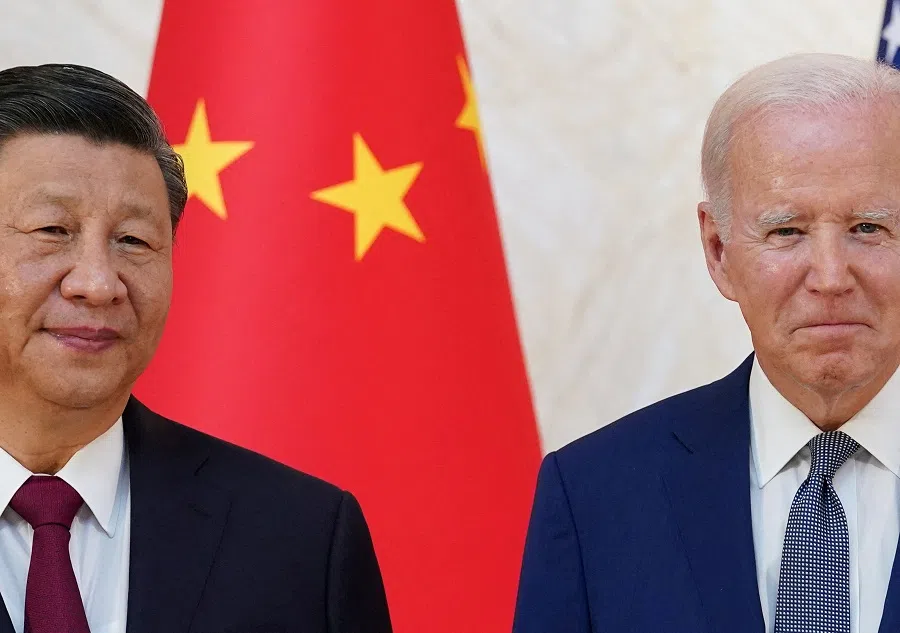Xi Jinping's rare absence from the G20 summit
Chinese President Xi Jinping's likely absence from the upcoming G20 summit in New Delhi sends a message, amid tensions with India. However, it also means that there is less of an opportunity for China to engage with the US. Does this also mean that China is less interested in talking to the US, or is it leaving that encounter for later at the upcoming APEC summit in San Francisco?

Chinese officials announced on 4 September that Premier Li Qiang will lead China's delegation to the G20 leaders summit in New Delhi this weekend, confirming prior news that Chinese President Xi Jinping might not attend the G20 summit this year.
The Chinese head of state has hardly missed any of the summits since its first edition in 2008, attending them virtually even during the pandemic in 2020 and 2021.
Following the Chinese Communist Party's 18th Party Congress in 2012, Beijing has been increasingly focused on its international discourse power and is actively promoting China's agenda through international meetings. In particular, the withdrawals by the US from many international organisations during the Trump administration gave China room to exert greater influence as it wanted, with Chinese leaders frequently appearing at multilateral meetings.
... China's tense relationship with the host country is believed to be the most significant context for Xi's no-show.
Sending a signal
Russia, at loggerheads with the West over its invasion of Ukraine, had earlier announced that President Vladimir Putin would not be attending the summit in New Delhi. Now, Beijing has also made the rare and somewhat surprising decision to send its premier to attend the summit instead.
On the global stage, whether or not a head of state attends an event is sending a signal. Some Indian academics believe that Xi's decision not to attend the summit is a show of non-support for India, and meant as a snub to Indian Prime Minister Narendra Modi, who seeks to exert influence as the host of the G20.

While Beijing did not explain why Xi would not be attending the New Delhi summit, China's tense relationship with the host country is believed to be the most significant context for Xi's no-show.
Border issues have led to deep differences between China and India, and the Galwan Valley clash in June 2020 added to bilateral tensions. While both sides attempted to reduce the risk of conflict through several rounds of corps commander-level talks, there were marked differences in how they saw and wanted to resolve the border dispute, so that progress was slow and it was difficult to fundamentally resolve the conflict.
During the BRICS summit in Johannesburg last month, the leaders of China and India only spoke on the sidelines with no formal meeting.
Tensions with India
And on 28 August, China's Ministry of Natural Resources released a new map reaffirming its sovereignty claims over disputed territories. The next day, India strongly protested against China marking Arunachal Pradesh and Aksai Chin plateau within its boundaries, and called Beijing's move "absurd".
In recent years, China-India tensions have extended to areas such as investment and technology, implicating even the media, with both sides forcing journalists from the other country to leave by denying them visas. The conflict between both sides has also been aggravated amid China-US rivalry - for instance, Beijing sees India's deep involvement in the Quadrilateral Security Dialogue (Quad) as helping the US contain China.

During the BRICS summit in Johannesburg last month, the leaders of China and India only spoke on the sidelines with no formal meeting. Indian officials said Modi expressed concerns about the border conflict, and that both sides agreed to instruct their relevant authorities to hasten de-escalation efforts. On the Chinese side, the foreign ministry only acknowledged that the two leaders had spoken after there were enquiries from journalists and following reports in foreign media. The interaction between Xi and Modi at the BRICS summit stood in stark contrast with the high-profile exchanges that Xi had with other world leaders who attended the summit, signalling the current sensitive nature of Sino-Indian relations.
... given that the G20 has always had a limited impact on global economy and politics, the value of a G20 summit lies not in the summit itself; the more important thing is the diplomatic opportunities it offers...
Lack of consensus
With the leaders of China and Russia not attending, and given China's tense relations with the host country, as well as the stasis in the war in Ukraine, it is unlikely that any consensus would be reached at the G20 summit in New Delhi.
An informed source said that there might not be a joint communique issued at the summit, as China has already openly rejected the draft communique's references to emerging market debt and its condemnation of Russia's war in Ukraine. In fact, since India took on the rotating presidency of the G20, there have been several energy, finance, and foreign minister meetings where members failed to reach a consensus, leading to a lack of a joint communique.
The current situation highlights that the G20, born out of the 2008 global financial crisis, is facing an even more severe challenge because the divisions between its member states are hard to heal. Then again, given that the G20 has always had a limited impact on global economy and politics, the value of a G20 summit lies not in the summit itself; the more important thing is the diplomatic opportunities it offers, as it provides a chance for member states to engage in dialogue on the sidelines.
Additionally, observers have noted recent signs that Beijing is becoming less interested in engaging with the US.
Missed opportunity
Interest in whether Xi will attend the summit is also strong because this is seen as an opportunity for a meeting between the leaders of China and the US before the end of the year. Over the past three months, several US officials have visited China, including Secretary of State Antony Blinken, Secretary of the Treasury Janet Yellen, special presidential envoy for climate John Kerry, and Commerce Secretary Gina Raimondo, which raised hopes of a meeting between Xi and US President Joe Biden. When there was talk that Xi might not attend the G20 summit, Biden, who was confirmed to attend, expressed disappointment but stressed that there would be other chances to meet with Xi.

The next potential meeting between the two leaders would be at the APEC summit in San Francisco in November. However, the US may decline to invite Hong Kong's Chief Executive John Lee, and this could be a factor influencing who Beijing sends to the US.
Additionally, observers have noted recent signs that Beijing is becoming less interested in engaging with the US. On Monday, China's Ministry of State Security said on its official WeChat account that the US strategy towards China was "old wine in new bottles", even declaring that the US should show sufficient sincerity.
Against Sino-Indian relations, relations with the US is the top priority for the Chinese foreign service. In theory, there is a high chance that the two leaders will meet at the APEC summit, since they were unable to do so at the G20 summit - however, the complexities of the China-US relationship run deeper than that between China and India, involving even more complicated problems. It remains to be seen if the two parties can foster the ideal environment for the heads of state to meet in the upcoming two months.
This article was first published in Lianhe Zaobao as "中国元首罕见不参加G20".





